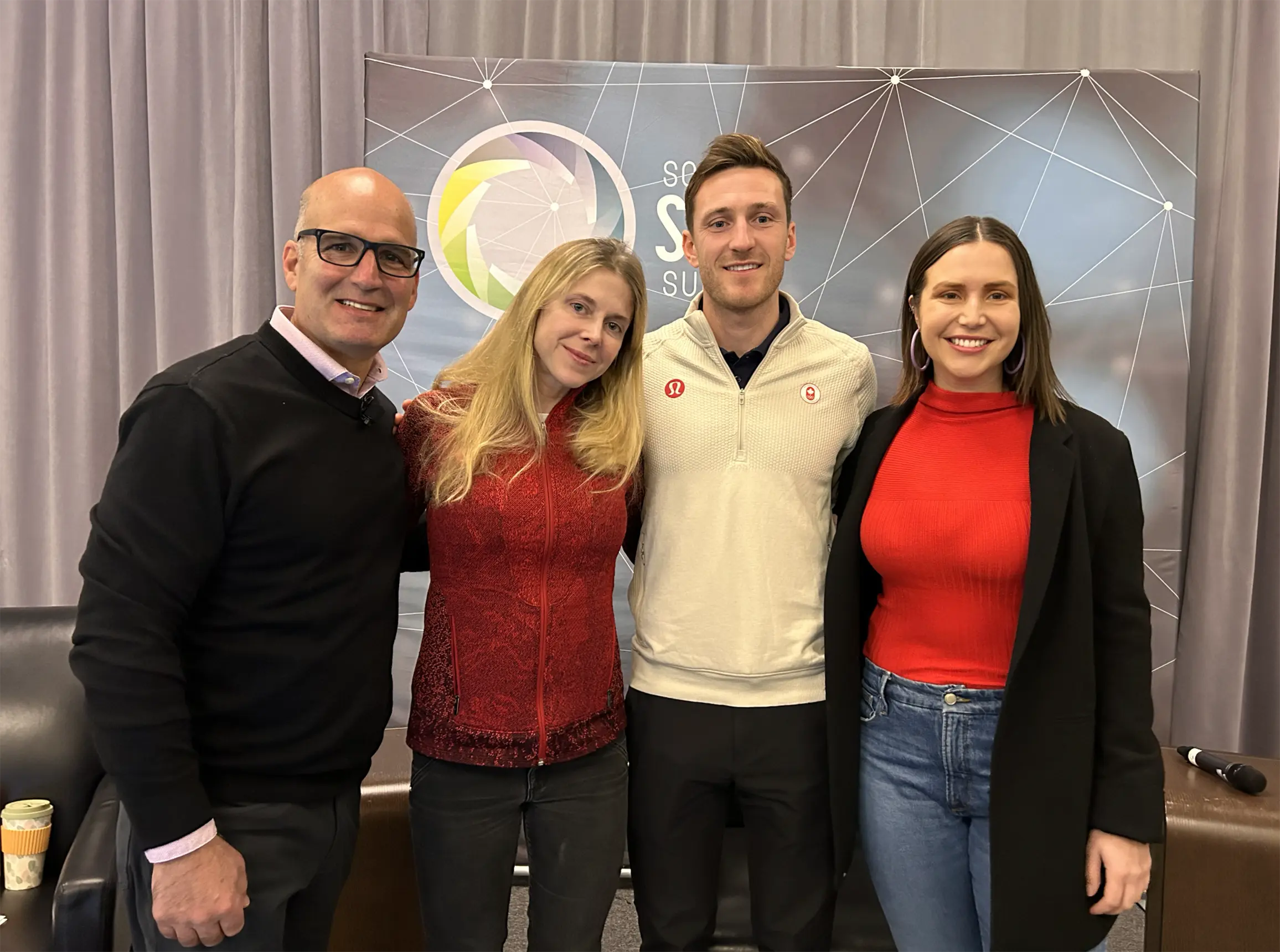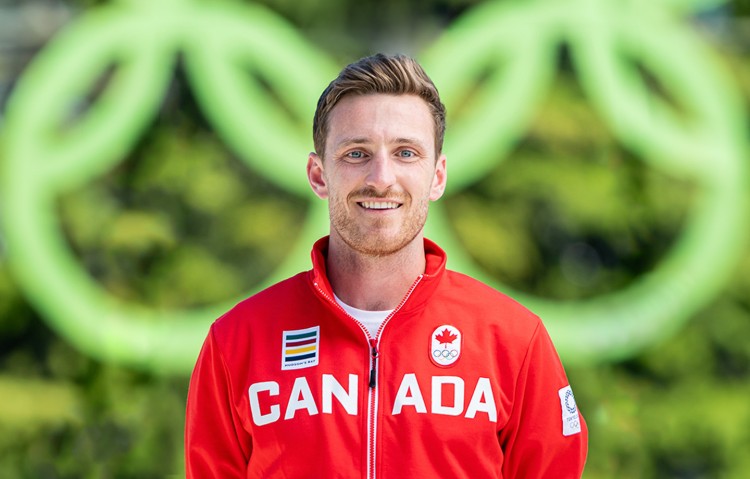
From the Olympic field to the forefront of environmental sustainability, Oliver Scholfield’s journey is one of passion, purpose and impact. A distinguished alumnus of the UBC Sauder’s Master of Management (MM) program, Scholfield exemplifies how education, experience and dedication can merge to drive transformative change.
The nine-month MM degree equips students with essential business knowledge and skills to advance their current careers. Through a four-month consulting project, students gain hands-on experience working with nonprofit clients, making a meaningful impact along the way.
Marrying a love for sports, business and sustainability
For a decade, Scholfield dedicated his life to the world of field hockey, representing Canada with unwavering determination. Yet, as his athletic career progressed, so did his desire to expand his horizons beyond the sports arena. “While I was playing for the national team, I realized I wanted to combine my technical background in forestry and natural resource conservation with essential business skills,” Scholfield reflects.
The MM program at UBC Sauder offered the perfect bridge between his technical expertise and his burgeoning interest in business.
“It was a chance to expand on my undergrad studies and immerse myself in business,” says Scholfield.
An immersive Community Business Project experience
One of the program’s standout features is the Community Business Project (CBP), a hands-on initiative where students tackle real-world challenges faced by nonprofits selected by UBC Sauder’s Business Career Centre. For Scholfield, the CBP was more than just an academic exercise; it was an opportunity to make a tangible impact.
His team was assigned to work with the United Way of Lower Mainland, a project that involved creating a comprehensive business plan for the Social Purpose Institute.
“We worked closely with the organization, developing strategies that combined business acumen with social purpose,” Scholfield recalls. “The project was fast-paced and immersive. We dived into pricing research, marketing strategies, and financial forecasts.”
The culmination of their efforts produced a business plan and implementation strategy which they presented to the organization’s Board of Directors, a milestone that highlighted the practical value of their work.
“The real-world setting of the CBP was incredibly valuable. It was one thing to study theories, but applying them to a live project was a different experience altogether,” he notes.
The skills he developed during this project—ranging from client management to project engagement—proved to be foundational in his new venture, Racing to Zero.

Starting Racing to Zero
Scholfield’s journey didn’t end with the MM program. In 2019, he co-founded Racing to Zero, a nonprofit dedicated to addressing the environmental impact of sports. “I noticed that climate change was affecting every aspect of sports—travel, equipment, waste generation. Racing to Zero was born out of a need to address these issues,” Scholfield explains.
What began as a small initiative with a local track and field club has grown into a significant movement, working with national and provincial sports organizations. Racing to Zero advocates for sustainable practices and helps sports organizations reduce their carbon footprint. “Our mission is to help sports organizations understand and reduce their environmental impacts, driving change both from the top down and bottom up,” Scholfield says.
The organization’s work involves everything from raising awareness about the environmental impact of sports to advocating for policy changes.
“We give presentations about how climate change affects sports and push for both bottom-up grassroots and top-down policy-level changes,” Scholfield explains. “We also work with organizations to measure carbon emissions and develop strategies to set targets that reduce these emissions.”

Paying it forward
Scholfield’s connection to UBC Sauder and the CBP program remains strong. This year, he is joining the Community Business Project — as an employer and nonprofit committed to nurturing future leaders.
“I wanted to give back to the program that had such a significant impact on my career,” he says. “It’s rewarding to support current students and work with them on a project that I now call my own. In fact, I’m sure I’ll be learning just as much from them with the fresh new ideas they’ll be bringing to the table. I hope they gain as much from their experience as I did."
Looking ahead, Racing to Zero continues to expand its reach and impact, with plans to grow its operations and influence.
“We’re looking to work with more organizations and drive systemic change in the sports industry,” Scholfield says.
The organization aims to support grassroots initiatives and advocate for higher-level policy changes, striving to make a significant impact on climate action.
